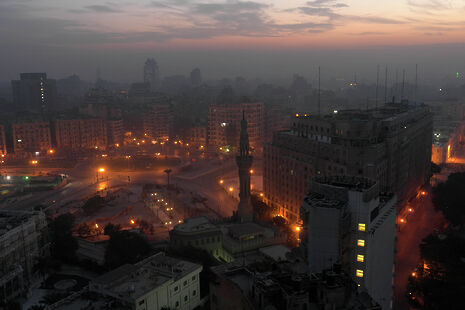Regeni case raises fundamental question: are researchers safe abroad?
Even areas ranked green for safety prove to be dangerous for foreign academics

While the facts regarding Giulio Regeni’s death remain unclear, it seems unlikely that anybody could have done anything to prevent it.
Nevertheless, the incident once again raises the question of academic safety for those working abroad.
When terror struck Paris last November the university was quick to react, being able to confirm the safety of all MML students within 24 hours.
But this was a mass terror attack in a city of millions. Regeni, on the other hand, disappeared after leaving his apartment to see a friend.
In such a scenario, where the danger may not be as immediately noticeable, is there anything that the university or the government can do to protect academics?
There have been some suggestions that Regeni may have been the victim of random terrorism by Islamist militants. This would not be unprecedented. In August, ISIS beheaded a Croatian man after kidnapping him just outside Cairo.
But if there is foul play on behalf of the Egyptian security forces, as some have suggested, then there are serious implications for the way in which risk is assessed.
In Foreign and Commonwealth Office travel warnings, much of Egypt is ranked amber or red, indicating serious risk. But Cairo, where Regeni was studying, was ranked green, suggesting only that travel advice should be consulted.
Under the current departmental regulations, this would not have required Regeni to check in with his supervisor weekly.
But in an authoritarian political system like Egypt’s, researchers are always under threat. A similar crackdown in Turkey has seen academics facing death threats.
Although he had been writing pieces for an Italian communist newspaper about the independent trade union movement (a controversial subject in Egypt), he had been doing so under a pseudonym and, according to his supervisor at the American University in Cairo, Rabab el-Mahdi, “he steered clear of anything that was politicised”.
The fact that Regeni followed all the suggestions of the Foreign Office and the procedures of the university calls into question the usefulness of these standards as the basis for health and safety policy.
Suzy Adcock, the Administrative Officer for POLIS, told Varsity: “the risk assessment policy will be addressed at the next Department graduate Forum, which is chaired by our Director of Graduate Education and is attended by all directors of the MPhil and PhD programmes in POLIS.”
She also noted that the Foreign and Commonwealth Office’s guidance would be discussed at this meeting, which will be held on the 16th February.
But Regeni’s case demonstrates that there is a difficult balance to be struck between personal safety and academic freedom. Area studies are a significant part of international research in the humanities, but if those pursuing these kinds of research projects feel threatened, then the quantity of such important research may decline.
According to the university’s latest risk assessment presentation, “the law does not expect you to eliminate all risks and the University is certainly not risk averse”.
Neil Pyper, a friend of Regeni, summarised the concern for academic freedom in a recent piece in The Guardian, saying: “There is the danger that overzealous risk management could affect researchers’ ability to carry out their work, making some important and high-impact research simply impossible.”
 News / Cambridge academics stand out in King’s 2026 Honours List2 January 2026
News / Cambridge academics stand out in King’s 2026 Honours List2 January 2026 Interviews / You don’t need to peak at Cambridge, says Robin Harding31 December 2025
Interviews / You don’t need to peak at Cambridge, says Robin Harding31 December 2025 Comment / What happened to men at Cambridge?31 December 2025
Comment / What happened to men at Cambridge?31 December 2025 Features / “It’s a momentary expression of rage”: reforming democracy from Cambridge4 January 2026
Features / “It’s a momentary expression of rage”: reforming democracy from Cambridge4 January 2026 News / Varsity’s biggest stories of 202531 December 2025
News / Varsity’s biggest stories of 202531 December 2025









